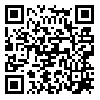جمعه 5 دی 1404
[Archive]
دوره 2، شماره 3 - ( Summer 2014-- 1393 )
جلد 2 شماره 3 صفحات 200-195 |
برگشت به فهرست نسخه ها
Download citation:
BibTeX | RIS | EndNote | Medlars | ProCite | Reference Manager | RefWorks
Send citation to:



BibTeX | RIS | EndNote | Medlars | ProCite | Reference Manager | RefWorks
Send citation to:
Delavar B, Dolatshahi B, Nouri M, Aryanfar K. Metacognition and Depression, State Anxiety and Trait Anxiety Symptoms. PCP 2014; 2 (3) :195-200
URL: http://jpcp.uswr.ac.ir/article-1-65-fa.html
URL: http://jpcp.uswr.ac.ir/article-1-65-fa.html
Metacognition and Depression, State Anxiety and Trait Anxiety Symptoms. Practice in Clinical Psychology. 1393; 2 (3) :195-200
چکیده: (6233 مشاهده)
Objective: The objective of this study was analyzing the effect of meta-cognition elements on depression, trait and state anxiety symptoms.
Methods: In this Study, the sample consisted of 224 students of University of Social Welfare and Rehabilitation Sciences that answered three questionnaires including Metacognitive Questionnaire (MCQ-30), Beck Depression inventory (BDI-II) and Spielberger State-Trait Anxiety Inventory. Pearson correlation coefficient and step-by-step regression to analyze were used for data analysis.
Results: According to the results, there is a positive and significant correlation between total score of metacognition and four elements of beliefs (positive beliefs, negative beliefs, uncontrollability and low cognitive trust (P<0.01). In addition, summary of results indicated that out of metacognitive elements, only general negative beliefs may predict the variations of depression scores, (P<0.01).
Conclusion: Summary of this study demonstrated that metacognitive beliefs are significantly effective on prediction of depression and anxiety. Moreover, out of metacognitive elements, only general negative beliefs, in comparison with other elements, may predict the depression.
نوع مطالعه: پژوهشي |
موضوع مقاله:
رويكرد شناختي رفتاري
دریافت: 1392/10/20 | پذیرش: 1393/3/16 | انتشار: 1393/4/10
دریافت: 1392/10/20 | پذیرش: 1393/3/16 | انتشار: 1393/4/10
| بازنشر اطلاعات | |
 |
این مقاله تحت شرایط Creative Commons Attribution-NonCommercial 4.0 International License قابل بازنشر است. |

